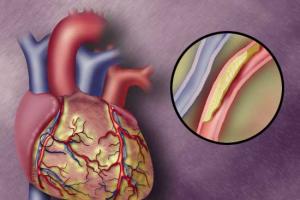The period of pregnancy for a woman is shrouded not only in continuous happiness in anticipation of her crumbs, because how often the expectant mother literally worries about every step she takes.
Of course, some fears are completely justified, but some should not be taken seriously at all.
In this article, we will try to answer the question: are the fears of a pregnant woman really justified before using anesthesia during dental treatment, or is it possible to use this procedure without worrying?
First of all, you need to understand that untreated teeth are an infectious danger both for the mother (the infection can spread further) and for the child, up to a threat to the bearing of the fetus.
The body of a pregnant woman works on the formation of a child, so it is difficult for him to cope with the existing threats, and that is why it is desirable to solve all dental defects before pregnancy.
What other threats exist?
- Pain sensations. Constant aching toothache in a pregnant woman is stressful, and not only for the mother, but also for the baby, which in itself is undesirable.
- Bad nutrition. If there are problems with the teeth, it will be difficult for the expectant mother to chew food, eat, and there will be no healthy appetite.
And at this time it is extremely important to replenish the reserves of essential substances and trace elements.
- Caries will certainly be transmitted from mother to baby. It can also be attributed to an infectious threat.
Mom passes on her microflora to the child mainly through kisses, and for him this threatens, in addition to obvious problems with teeth, stomach problems and a general decrease in immunity.

Obviously, even a pregnant woman needs to be treated for dental diseases. Consider the possibilities of treatment for each period.
Procedures in the first trimester
Throughout the first trimester, the tissues and organs of the child are only being formed, so any intervention, including medications, is not desirable.
In addition to these factors, the psycho-emotional background of the expectant mother remains important - stress from experiences, pain during the procedure - all this can adversely affect the course of the entire pregnancy.
Of course, it is better not to take risks and, if possible, to postpone the procedure to a later date, but there may be situations that require an immediate solution.
For example, if the problem is very advanced (exacerbated inflammation, purulent foci, nerve removal), anesthesia may simply be a necessity. Only a doctor can make the right decision.
Here is what experts say about the possibility of anesthesia and x-rays during pregnancy:
Procedures in the second trimester
This period is optimal for dental treatment. After 14 and up to 27 weeks of pregnancy, the placenta becomes sufficiently dense and formed to protect the baby well from the negative effects of drugs.
The child himself ends the stage of laying the internal organs.
The specialist will help prescribe anesthesia, which will be safe for both the baby and the expectant mother. Next, we will consider specific drugs that are used in such cases.
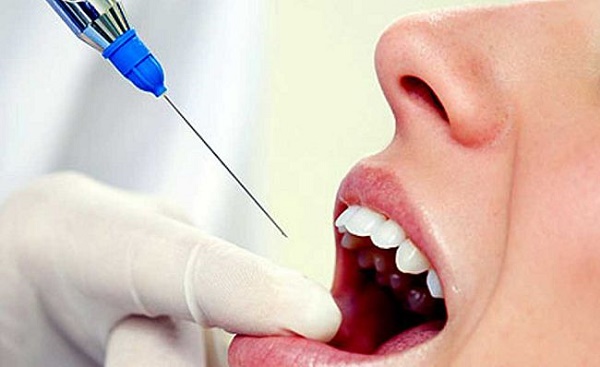
Procedures in the third trimester
The third trimester of pregnancy is marked by increased sensitivity of the uterus to external stimuli, which is why it is undesirable to carry out treatment with anesthesia during this period - the consequences can be in premature birth.
A long-term appointment with a dentist can have an undesirable effect on a woman’s body, specifically, the heart suffers the most from this, since with a reclining position on the back, additional pressure is created on the aorta and vena cava.
This can result in dizziness, low blood pressure, feeling unwell or even losing consciousness.
Therefore, the recommendations of experts are unequivocal - the best time to visit the dentist is the second trimester, but, as in any emergency, everything is individual, the main thing is to visit the dentist on time.
What diseases can be treated?
During pregnancy, the following dental diseases are treated:
- Caries refers to diseases caused by infection. If you delay with its treatment, you can get a lot of undesirable consequences - from inflammatory processes to problems with the gastrointestinal tract.
- Gingivitis- this is a disease, as well as caries, which is very common during pregnancy due to changes in the body and hormonal changes.
Gingivitis is an inflammatory process of mucous gums. The consequences of untimely response can be very serious, up to premature birth.
- Parodontosis and periodontitis- damage to the periorbital tissue. In the advanced course of the disease can lead to loss of teeth.
- Pulpitis and periodontitis- inflammatory processes that affect the nerves of the teeth, accompanied by high pain sensations, may be the result of untreated caries.
- Odontogenic periostitis (flux)- the inflammatory process taking place in the periosteum is expressed by a high degree of pain and can lead to tooth extraction.
- Stomatitis- with this disease, the mucous membrane is affected. Most often it appears due to changes in the hormonal background in the body of a pregnant woman.
Running stomatitis also poses an infectious threat to mother and child.
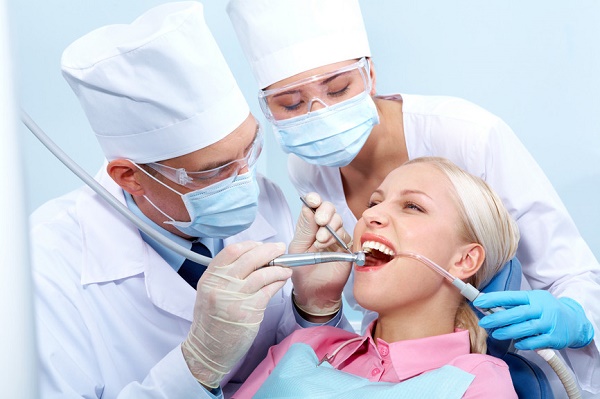
During pregnancy, it is also not forbidden to perform dental prosthetics, however, the use of implants (installation of an artificial tooth root) may be an exception.
This is due to the fact that the acclimatization of an artificial structure to an already loaded organism will require even more energy, and this procedure, in some cases, may require the mandatory use of additional medications.
If there is a need to extract a tooth using anesthesia, then it is better to do it in the second trimester of pregnancy, the reasons explaining this are indicated earlier.
What drugs are used
The dentist, before prescribing a specific drug, should consult with the local doctor from the antenatal clinic who observes the pregnant woman, or familiarize herself with her card. And already taking into account all the existing nuances (possible allergic reactions), the specialist prescribes the necessary drug.
As anesthesia for ordinary dental procedures, drugs are usually used, which are based on adrenaline - it constricts blood vessels, prevents bleeding, and, of course, relieves pain sensitivity.
However, during pregnancy, such drugs cannot be used, as they can increase blood pressure and bring the uterus into increased tone.
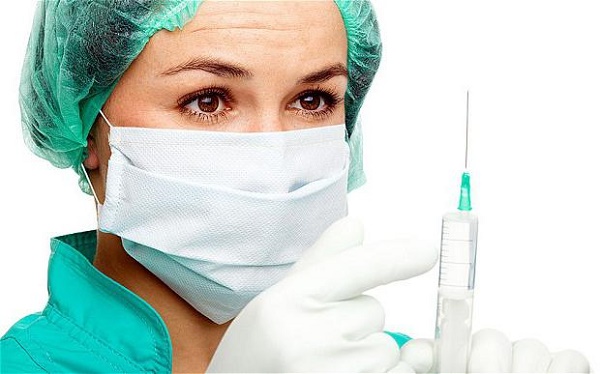
To date, numerous studies in this area allow the use of anesthesia with a minimum content of adrenaline.
The placenta does not pass the adverse components contained in the composition and, as a result, no harmful effects on the child occur.
The most common local anesthetics are ultracaine and primacaine.
Ultracaine not only does not penetrate the protective barrier of the placenta, but also does not affect the quality of breast milk, that is, it can also be used during lactation.
The dose of the drug is individual and takes into account the duration of pregnancy, age and general condition of the woman.
The drug acts on the nerve endings and blocks them, thereby preventing their irritation and conduction of nerve impulses. The action of ultracaine does not interfere with regeneration processes and does not increase blood pressure. After 5-10 hours, it is completely excreted in the urine.
Primacaine practically does not cross the placenta and has a short half-life. Articaine and epinephrine in the composition of the drug act as active substances. The vasoconstrictor effect of epinephrine creates a prolonged effect of anesthesia - it lasts 45 minutes.
The cost of anesthesia in dentistry is on average 250 - 300 rubles.
Without an injection
It should be noted that not all cases require anesthesia. So, for example, if caries has only an initial stage, then the treatment procedure will not cause severe pain and, accordingly, anesthesia can be dispensed with.
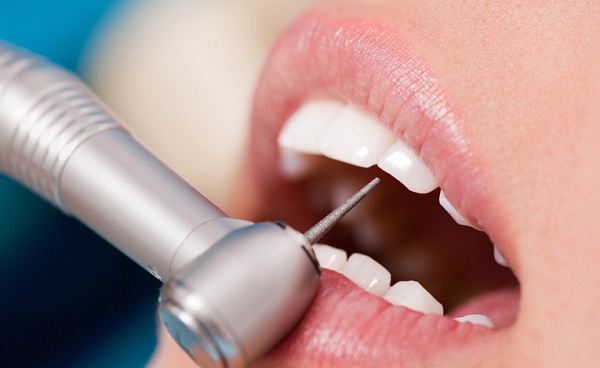
But this is rather only an exception, with serious interventions it is necessary to use anesthesia. In such cases, it is absolutely not worth being a hero and refusing pain relief - the harm received during such painful stress by the child from the mother will be much stronger than the alleged harm from medications.
As mentioned earlier, the psycho-emotional state of the expectant mother is extremely important for the health of the baby.
Undoubtedly, the ideal option is the complete absence of any drugs, and that is why in no case should you delay visiting a specialist and exacerbate existing problems with your teeth.
Conclusion
Now, in conclusion, it is worth answering the question posed at the beginning of the article: is it still possible or not to treat teeth with anesthesia during pregnancy?
The answer is obvious - it is necessary to treat, given that the harm from untreated teeth is supposed to be greater than the harm from the use of anesthesia.
Once again, we will make a reservation that only a specialist dentist can correctly prescribe the procedures, the necessary drugs and their dosage.





